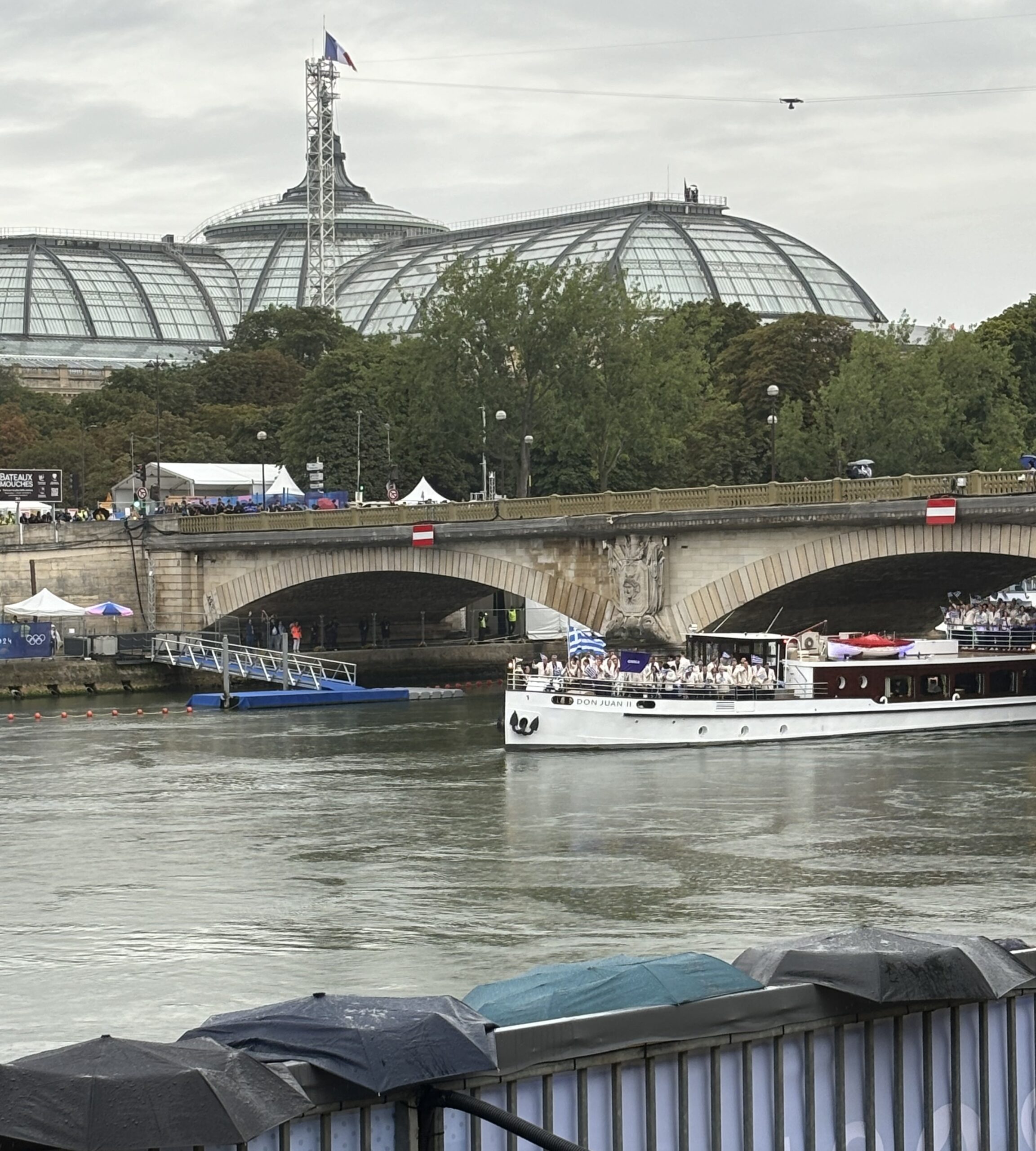
There is something more terrible than a hell of suffering — a hell of boredom.
— Les Misérables
PARIS — You can call the 2024 Olympic Summer Games Opening Ceremony many things. Boring will never be one of them.
Sponsored Content
It was the best Opening Ceremony ever, and the wettest. It was a production of unabashed French culture, and parts of it producing such an almighty backlash there were perfunctory non-apology apologies released.
It was 15,000 people involved and nearly $150 million to produce. It was an estimated 300,000 all told on hand, no small portion of them police officers, soldiers and private security guards to ensure safety with, at times, more than dozen guards in one 25-yard radius.
It was unprecedented in every way. From not being in a stadium to the cauldron being lit far away from the public eye. It was song, dance and culture. It was the Olympic cauldron flying above the Tuileries gardens at the Louvre.
This was the opening of the Paris Games and the re-opening of the Olympics. After eight years in COVID-enforced darkness, those who were there stood through driving rain for nearly four hours along the Seine not as much to see the Opening Ceremony — you really only saw what floated by and the rest of the time you were watching TV — but to forever say that they were there.
Was there sunshine? No, but it was the IOC chasing winter from its recent history.
Not being heard is no reason for silence.
Lady Gaga performed along the Seine as if in a Marseille nightclub straight out of Casablanca. French pop star Aya Nakamura emerged from a pyrotechnic display to sing with a Republican guard band of the French army. A freshly guillotined Marie Antoinette was shown clutching her severed head, singing: “The aristocrats, we’ll hang them” before heavy metal band Gojira tore into a set.
Then there were the drag queens, catwalk and … what, exactly, was that?
It was groundbreaking and it was hilarious and it was mysterious and it was confusing and it was controversial (to some). It was, in its essence, France.
“In France, we have the right to love each other, as we want and with who we want,” said Thomas Jolly, the show’s artistic director. “In France, we have the right to believe or to not believe. In France, we have a lot of rights. Voila.”
It is a charming quality of the happiness we inspire in others that, far from being diminished like a reflection, it comes back to us enhanced.
On the roof of the Grand Palais stood opera singer Axelle Saint-Cirel in a bleu-blanc-rouge dress adorned with a 6-meter-long train singing a new version of La Marseillaise, joined by spectators gathered on the quays in a choir of their national anthem. It was an event that, at the Games in which gender equity has been achieved by the IOC, celebrated women with 10 golden statues of female pioneers rising from giant pedestals along the river.
It was the charming French landmarks highlighted in one night; a boating route that went by the Esplanade des Invalides, the Place de la Concorde, the Notre-Dame and the Grand Palais, before arriving at the Trocadero opposite the Eiffel Tower.
And it involved and marked the history of the Olympic Games on the big screens along the route, showcasing haunting images and memories and legends and successes of Games past as galloping on a metal horse, a rider rode down the Seine and the course of the ceremony, draped in a cape emblazoned with the Olympic rings, unfurling dove wings on her way to the Trocadero with the Olympic flag.
Even the darkest night will end and the sun will rise.
Was it flawless? No. The Olympic flag was raised upside down upon its arrival. The South Korea delegation was introduced as being from North Korea, leading the IOC to issue a formal apology (embarrassingly, it was not the first time at an Opening Ceremony this mistake has happened).
While rain may have fallen on Paris’ parade, it did not disappoint the ones who were there, who sang the songs they know and cheered the return of the flame down the Seine from the Trocadero in an elaborate conclusion that included dozens of international and French sporting legends before Céline Dion appeared on the balcony of the Eiffel to sing “L’Hymne à l’amour.” The ones who came hours before it started along the Seine left by foot, into the gloaming dusk at midnight as the Eiffel Tower sparkled from a distance.
By Saturday afternoon, the sun was rising.












 Copyright © 2025 by Northstar Travel Media LLC. All Rights Reserved. 301 Route 17 N, Suite 1150, Rutherford, NJ 07070 USA | Telephone: (201) 902-2000
Copyright © 2025 by Northstar Travel Media LLC. All Rights Reserved. 301 Route 17 N, Suite 1150, Rutherford, NJ 07070 USA | Telephone: (201) 902-2000